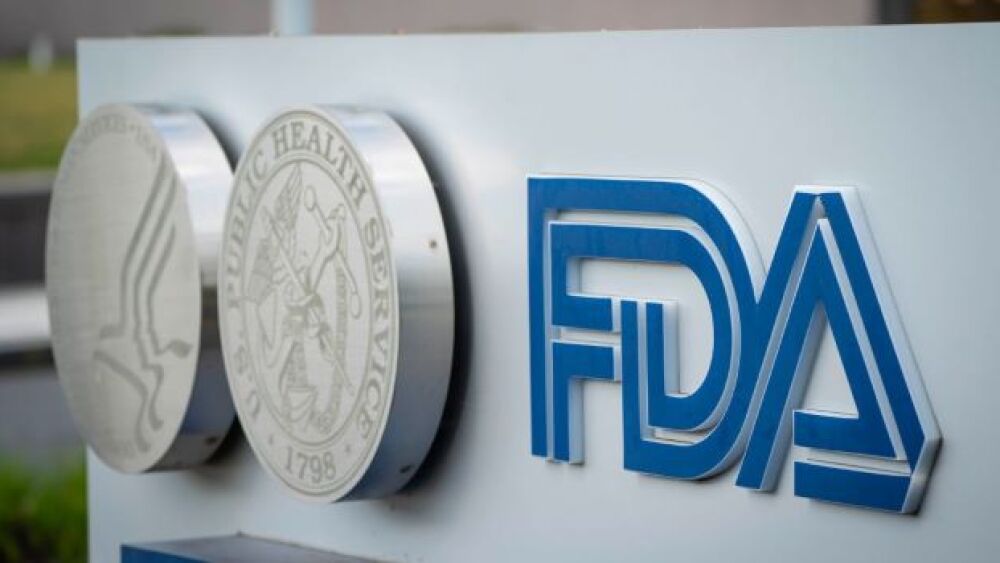The U.S. FDA cites concerns regarding clinical data for ChemoCentryx’s investigational rare autoimmune disease therapy avacopan. Shares in the company plunged 46.5% lower following the release of the document.
FDA cites concerns over avacopan. (Sarah Silbiger/Getty Images)
The U.S. Food and Drug Administration (FDA) released a briefing document on Tuesday citing concerns regarding clinical data for ChemoCentryx’s investigational rare autoimmune disease therapy avacopan. Shares in ChemoCentryx plunged 46.5% lower following the release of the FDA briefing document.
The document, published in advance of an agency-led advisory committee meeting set for this Thursday, outlined several concerning points with the Phase III trial of avacopan. ChemoCentryx is currently seeking approval from the FDA for the drug as a therapeutic agent for anti-neutrophil cytoplasmic auto-antibody-associated vasculitis (AAV). The company submitted findings from one Phase III study (CL010_168) and two Phase II studies (CL002_168 and CL003_168) to support this approval.
In late 2019, the company said avacopan is superior to a standard-of-care regimen at 52-weeks’ follow up in terms of improvements in vasculitis. The drug also showed noninferiority to standard of care at 26 weeks. In contrast to today’s stock market readings, shares in ChemoCentryx shot up following the news of the Phase III findings.
But despite the positive findings from the late-stage trial, the FDA says in the new briefing document that there are issues associated with the study that may impact data interpretability. Specifically, the noninferiority observation at the 26-week follow up period largely contributed to the FDA’s concerns.
“In pre-submission communications,” the agency wrote in its letter, “FDA stated that a noninferiority comparison would not be sufficient to show that avacopan can replace glucocorticoids as it would be difficult to establish whether avacopan is effective or whether rituximab/cyclophosphamide was the primary driver of the efficacy in both treatment arms.”
Another problem for the FDA was the lack of available historical clinical trial data to estimate glucocorticoids’ contribution to the effect of glucocorticoids and cyclophosphamide or rituximab in the control group. Additionally, approximately 86% of patients taking the study drug also used glucocorticoids, which weren’t supplied by study staff, over their first 26 weeks of participating in the trial. Ultimately, this concomitant use of corticosteroids may further complicate the comparison of avacopan to a standard of care.
And while the trial from ChemoCentryx demonstrated the superiority of avacopan over standard of care by 52 weeks, the FDA has questions on these data. For instance, at 52 weeks in patients taking the investigational agent, the response rate was approximately 15 percentage points higher than patients in the control group in an overall subgroup of patients taking rituximab background induction therapy. But the delta decreased to only three percentage points in a subgroup of patients on cyclophosphamide.
The agency wrote: “The result of the subgroup analysis suggests the possibility that avacopan was efficacious only in the population who did not receive standard-of-care maintenance immunosuppression therapy and may be considered undertreated, raising questions about the adequacy of the comparisons and clinical meaningfulness of the avacopan effect at Week 52.”
The FDA ended its letter in acknowledging that AAV is a severe disease that requires new, effective treatments. As such, the agency called calling for a discussion with the company during Thursday’s Arthritis Advisory Committee meeting over the concerns cited in the briefing document. “However, FDA wants to ensure that new products have a defined context of use…and a favorable benefit-risk assessment for patients,” the FDA wrote. “given the concerns outlined above, the context of use and the benefit-risk of avacopan for the treatment of AAV are important to discuss with this Advisory Committee.”





